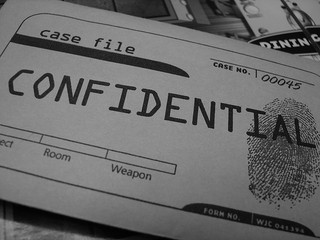Procurement Integrity Violations Cost Contractor $60,000
 Questionable activities were commonplace in the procurement industry long before the Procurement Integrity Act passed in the late 80s. From small-scale construction projects to multimillion dollar research and development proposals, there have been cases of espionage, bid tampering, and similar crimes.
Questionable activities were commonplace in the procurement industry long before the Procurement Integrity Act passed in the late 80s. From small-scale construction projects to multimillion dollar research and development proposals, there have been cases of espionage, bid tampering, and similar crimes.
Penalties are harsh at any level, but contractors and procurement professionals working with federal projects pay dearly for participating in any sort of unethical bidding activities. Ian Colle and his former employer, Paragon Dynamics, are the most recent example.
This article is for Premium Members only. Please login below to read the rest of this article.
Not a Premium Member yet? Become one today.
[login_form redirect=’https://www.procurementbulletin.com/procurement-integrity-violations-cost-contractor-60000/’]
[show_to accesslevel=’Premium Members’]
Corporate Espionage Costs $1.15 Million
In early September, the US government claimed that Paragon Dynamics violated the Procurement Integrity Act while bidding on contracts with the National Reconnaissance Office in 2008 and 2009. The privately owned, Aurora-based company competed with larger Raytheon, one of the nation’s leading defense contractors, for confidential government technology projects. During this time, Paragon’s president allegedly received sensitive information about two contracts, including drafts of Raytheon’s bid proposals. Paragon paid $1.15 million to resolve the issue.
Paragon Spy Pays $60,000 and Career
“When contractors compete to win a government contract, they have to play by the rules,” said United States Attorney John Walsh. “If they attempt to cheat in that process, through corporate espionage or other methods, the Department of Justice will hold them accountable with stiff penalties.”
Paragon’s former senior director of Software Engineering, Ian Colle, found out that Walsh’s statement applies to everyone involved, from the company to the employee. While employed with Paragon, Colle also worked with Raytheon in their Aurora facility. Colle used his status to get access to Raytheon’s proposal documents for the contracts and shared the papers with the Paragon president. Raytheon security cameras caught Colle faxing the documents, leaving Colle no choice but to admit his guilt and make the $60,000 settlement.
Defense Criminal Investigative Service agent, Janice Flores, said, “This settlement highlights the federal government’s continuing resolve to ensure those who violate the Procurement Integrity Act are held accountable for their actions.” – A reminder to everyone working within the procurement industry that ethics and integrity are the best practice.
[/show_to]






